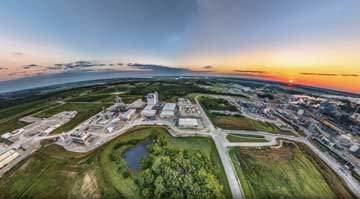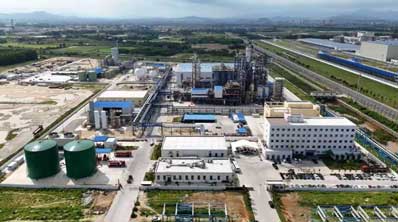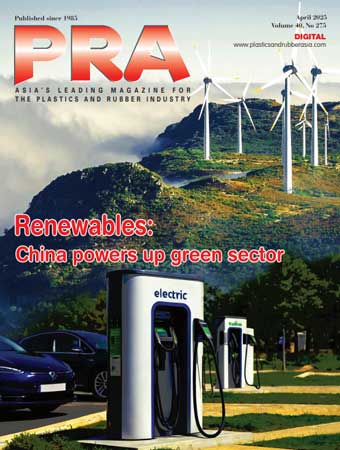Green materials: Qore starts up US$300 mn corn-based BDO plant; Dongyue Chemical opens industrial-scale chemical recycling plant in Guangdong

Qore, a joint venture of Minnesota-based Cargill and Germany-based Helm, is officially starting production of Qira, said to be the world’s first large-scale US$300-million 1,4-butanediol (BDO) facility. It is set to produce 66,000 metric tonnes of Qira, using corn grown primarily within 100 miles of the site.
At the heart of the environmental benefits are Iowa farmers who apply regenerative agriculture practices for growing dent corn. These practices are a holistic and inclusive approach to land management, meant to restore soil and ecosystem health. The proximity of the feedstock enables greater traceability and transparency throughout the supply chain.
Qira is an identical replacement to fossil-derived BDO and can readily drop in to manufacturing processes across multiple industries, including: fashion, footwear, beauty and personal care, automotive, electronics and packaging.
Companies like Lycra are already integrating Qira into their product strategies. It will enhance the sustainability of Lycra fibre, with the potential to reduce its carbon footprint by up to 44% compared to fossil-based alternatives. Similarly, German chemicals firm BASF has secured a long-term supply agreement to incorporate Qira into its existing derivatives portfolio.
“Qore is able to leverage the deep agricultural network and world-class fermentation technology expertise from Cargill and Helm’s global market reach to bring Qira to life,” said Jon Veldhouse, CEO of Qore. “By providing a reliable, renewable, and transparent feedstock, Qira helps global manufacturers and brands implement identical materials that reduce reliance on oversea supply chains, bringing more transparency to their product portfolios.”
In other news, China’s first industrial-scale chemical recycling plant with 200,000-tonne/year capacity has started trial production in Jieyang city in Guangdong province, operated by Guangdong Dongyue Chemical Technology Co. The technology involves a one-step process that eliminates sorting of mixed scrap plastics prior to recycling.

Zhang Xingong, chairman Guangdong Dongyue Chemical Technology Co, said the core innovation of the project lies in the pioneering "one-step" chemical recycling process for scrap plastics.
Unlike the commonly used two-step process of "classifying and dissolving first before processing into chemical raw materials", the project's technology does not require complex sorting of various low value mixed scrap plastics, Zhang said.
"It can directly convert them into high value-added chemical raw materials, greatly reducing the sorting cost of plastics and achieving a product yield of more than 92%," he said.
Municipal and provincial officials are solidly behind the project, says China Daily, which reported the news. The city of Jieyang has the stated ambition of transforming itself into the world’s first plastic chemical recycling industry base in the years ahead.
As the project moves through the next two construction phases, the ultimate goal is to process more than three million tons of scrap plastics annually.
"Through deep catalytic cracking, low-value mixed scrap plastics are directly converted into high-value-added chemical raw materials in a one-step process, which will effectively solve the problem of plastic pollution and achieve high-value recycling and utilisation," Wang Shaole, deputy party secretary of Jieyang city, told China Daily.
(PRA)SUBSCRIBE to Get the Latest Updates from PRA Click Here»









